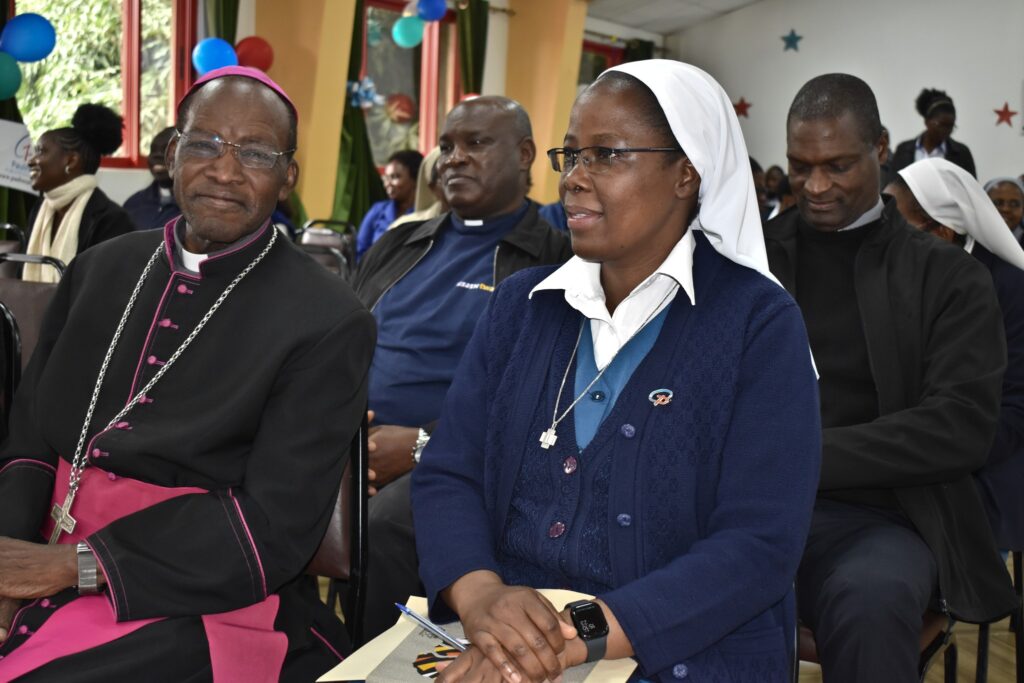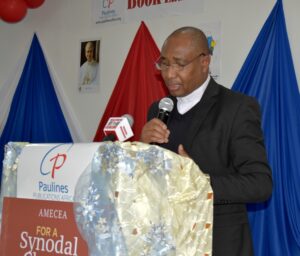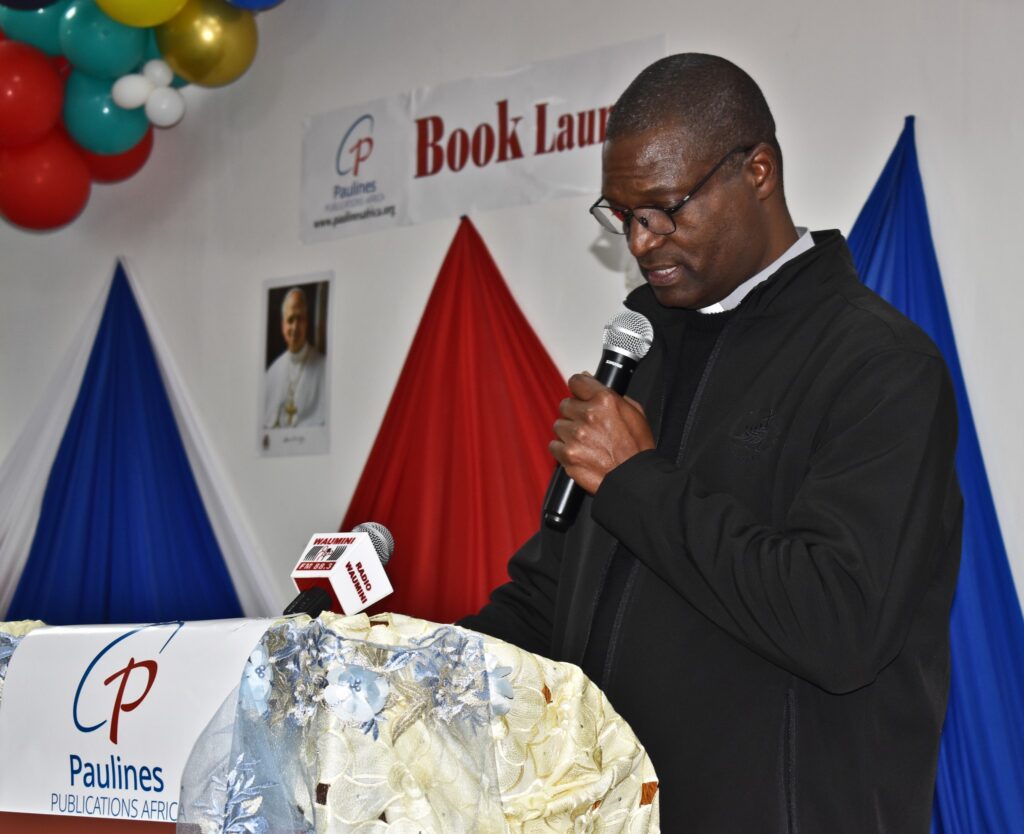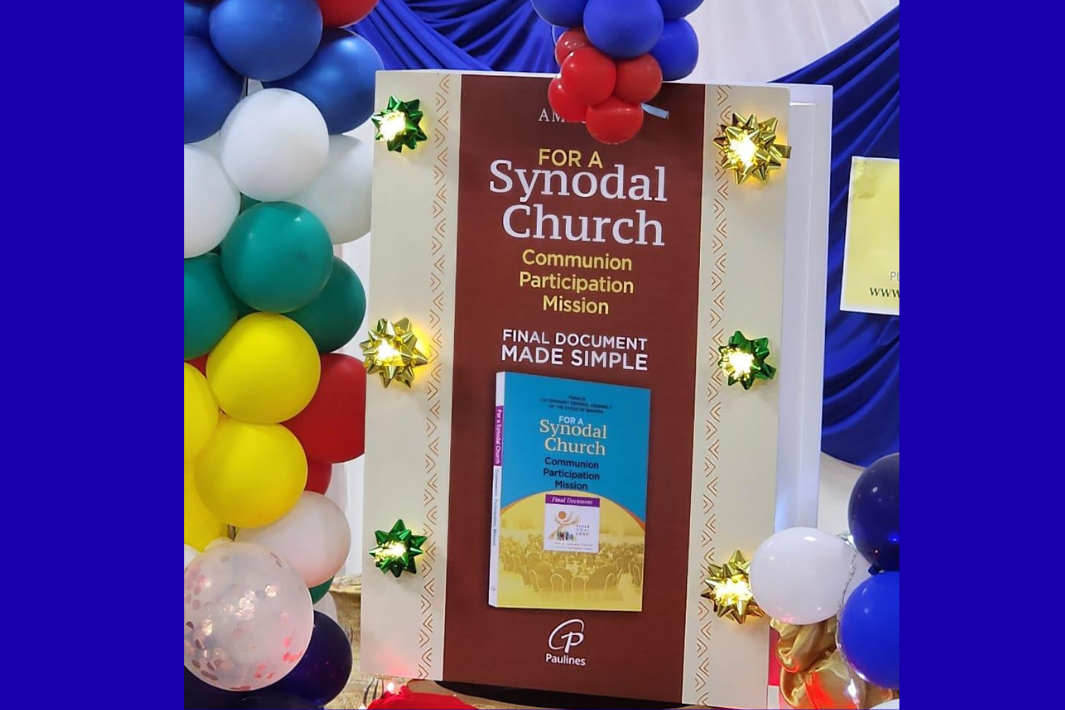By Paschal Norbert
NAIROBI, JULY 25, 2025 (CISA)- In a significant step toward demystifying the Synod on Synodality for the grassroots Church in Africa, the Association of Member Episcopal Conferences in Eastern Africa (AMECEA), in partnership with Paulines Publications Africa, officially launched a new book titled “For a Synodal Church: Final Document Made Simple” on July 23, 2025.
The simplified version of the Synod’s final document is designed to foster inclusive understanding, active participation, and practical implementation of synodal principles in dioceses, parishes, and Small Christian Communities.
The launch event, which took place at the Paulines in Nairobi, was opened by Sr Praxides Nafula, Directress of Paulines Publications Africa, who contextualized the project with the biblical story of Philip and the Ethiopian eunuch from the Acts of the Apostles.

“Just as the Apostle Philip, guided by the Holy Spirit, explained Scripture to the eunuch, so too has AMECEA taken up this mission to simplify the Synod’s final document,” she said.
Sr Praxides described the book as “a labour of love and a response to the Spirit’s call to make the Church’s wisdom accessible to all.” She emphasized that the book is more than a summary, “it’s an invitation to deeper participation, renewed faith, and bold witness.”
Delivering the keynote address, Archbishop Martin Kivuva of Mombasa, who participated in the 2021–2024 Synod sessions in Rome, shared his personal experience of the synodal process.
“The Synod welcomed everyone to participate. Now, we are being asked to take action,” he said.
Reflecting on Pope Francis’ pastoral image of the Church as a shepherd who “smells like the sheep,” Archbishop Kivuva underscored the need for closeness to the people.
“By being close to the sheep, you hear their inner cries and share their journey,” he explained.
He called on the Church in Africa to embrace its mission identity: “Armed with synodal methodology, we can walk together towards a future where every baptized person knows their dignity, exercises their gifts, and participates fully in the mission of the Gospel.”

Fr Anthony Makunde, Secretary General of AMECEA and a Synod expert, offered a detailed breakdown of the implementation structure and why the simplified book matters.
“The main actors in implementation are the entire People of God – it’s me and you,” he said. Emphasizing ‘differentiated co-responsibility’, Fr Makunde outlined roles for bishops, priests, diocesan collaborators, synod animation teams, and ecclesial groupings such as Episcopal Conferences, AMECEA, and SECAM.
“This book,” he stated, “is not the end, but the beginning of a new chapter in the Church’s life. As Pope Francis said, the journey of synodality is what God expects of the Church in the third millennium.”
He affirmed that the simplified version would serve as a practical tool across dioceses from 2025 to 2028, the phase when synodal recommendations must be lived out at every level of Church life.
At the launch, Fr Andrew Kaufa SMM, Communications Coordinator at AMECEA, stressed the importance of the book as a bridge between the Synod’s rich theological insights and the daily reality of the African Church.

“At this level, the question is: Are we accepting the synodal style of being Church in our local context?” he posed. Fr. Kaufa referenced the words of Cardinal Mario Grech, Secretary General of the Synod of Bishops, that synodality begins at the Small Christian Community level.
He proposed a simple three-step engagement model: Read the document together, reflect with discussion questions, and decide on action. He explained how each chapter of the book ends with questions for families, associations, and parishes, making it a powerful tool for formation and planning.
“This document raises key points about transforming our parishes, how to make them more transparent and accountable,” he noted, highlighting the importance of functional finance councils and pastoral structures.
